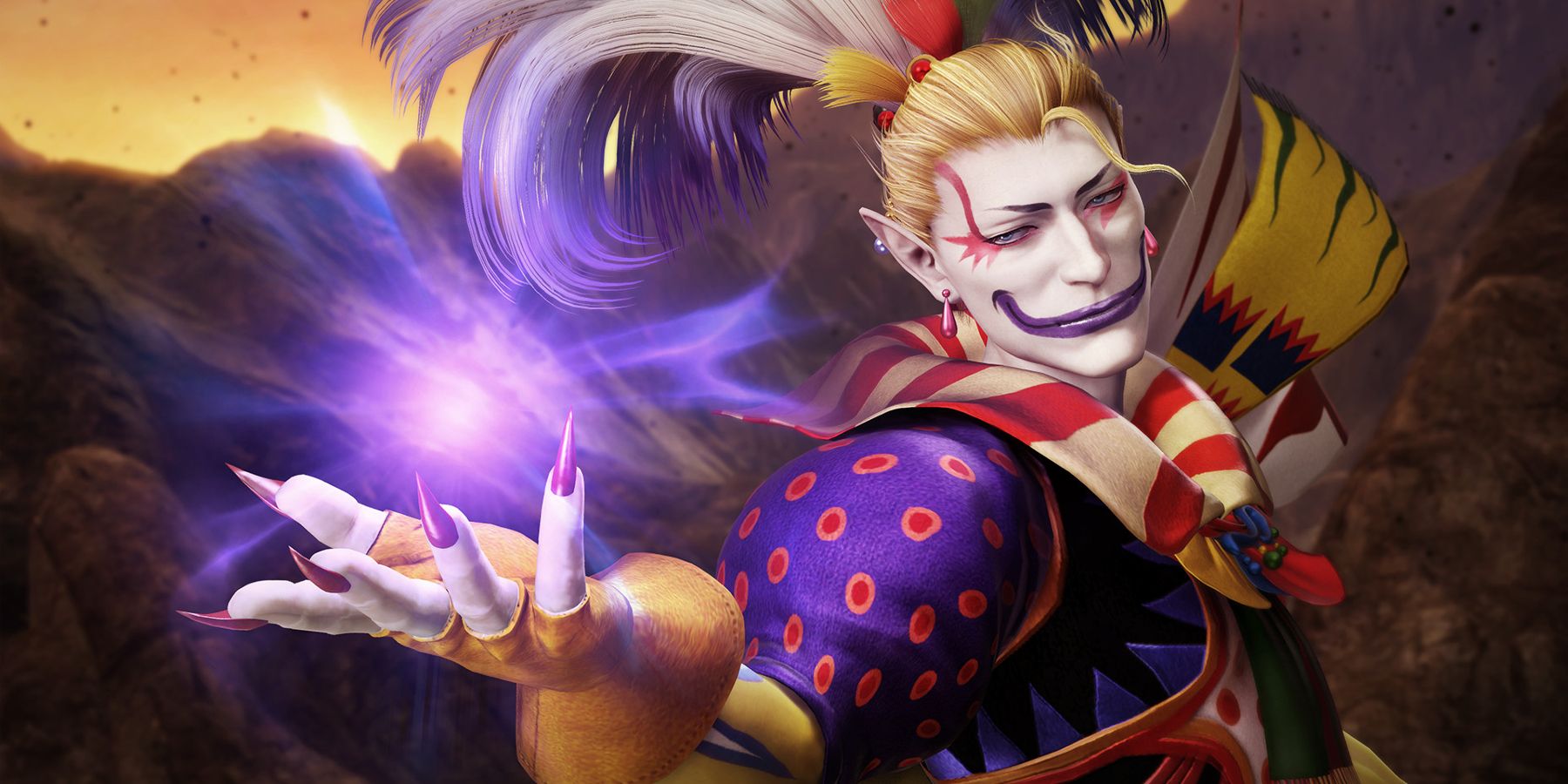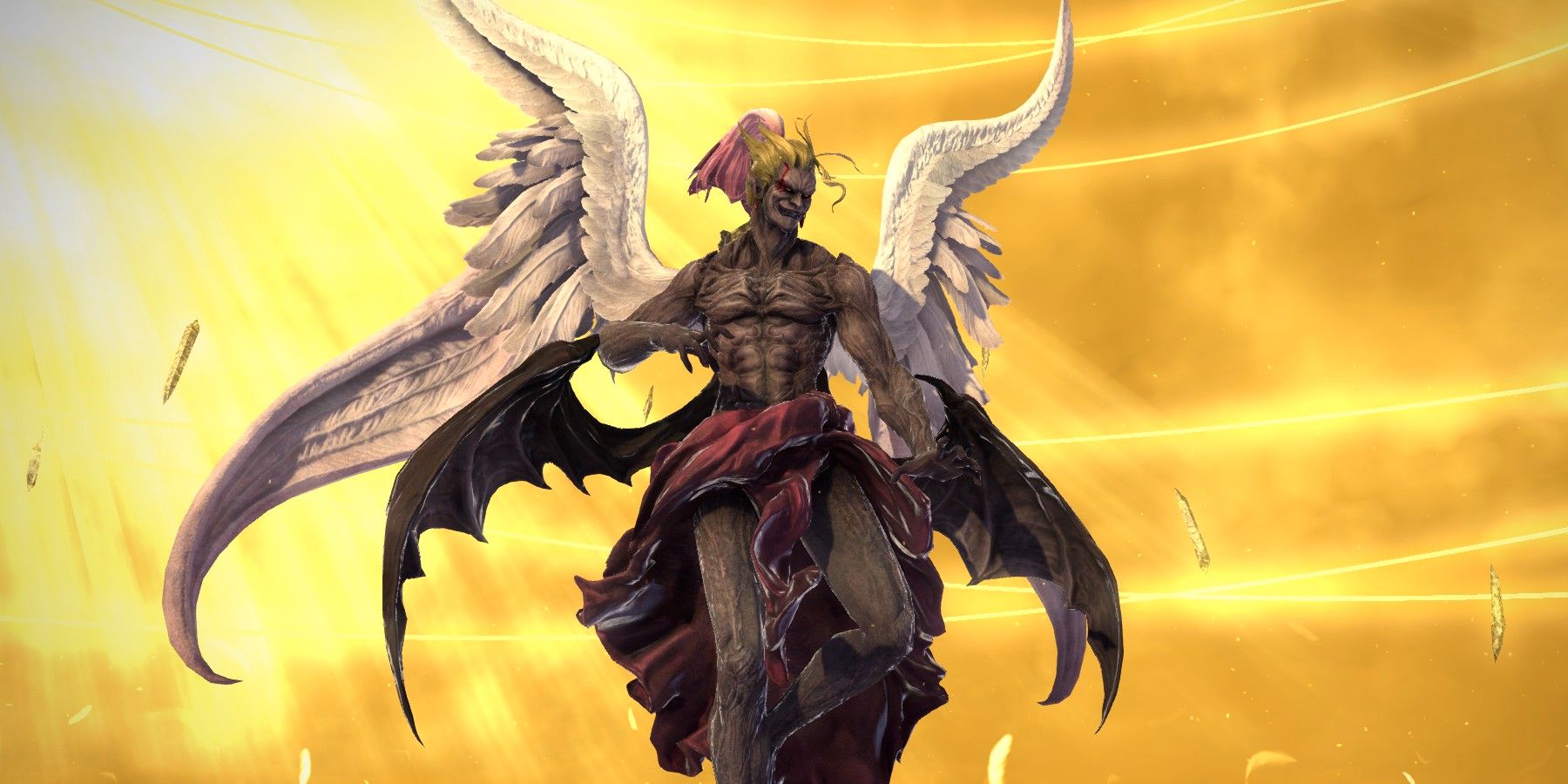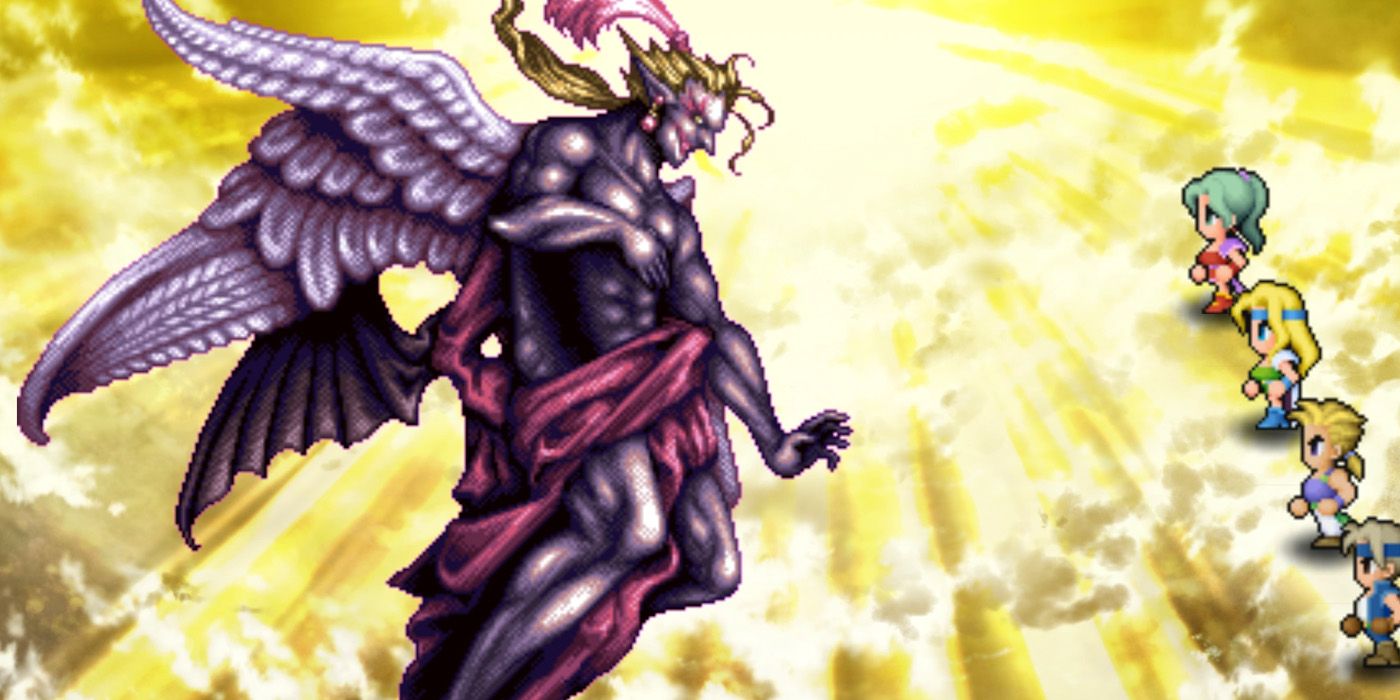Final Fantasy 6 is one of the most influential RPGs ever made. The SNES game is famous for its system-pushing mode-7 overworld and sprite work, which fans will be able to experience again once via the Final Fantasy 6 Pixel Remaster. Its gameplay is classic Final Fantasy in its most refined form, with the predecessors for FF7’s materia and Limit Break present to add extra flair and depth. While Final Fantasy 5’s superb job system has been phased out, Final Fantasy 4’s approach to characters representing jobs is back and better than ever.
One of the things Final Fantasy 6 is best remembered for is its characters. The writing in FF6 is well done and manages to keep the lion’s share of a massive playable roster relevant and interesting. Regardless of which translation one prefers, the cast and their various plights and mannerisms charm many. Perhaps the most charmingly vile member of that star-studded group is the main villain, Kefka Palazzo. This mad jester mage firmly embedded himself into discussions of the best villain in video games by committing atrocities in the name of the Gestahlian Empire and his own sick amusement.
RELATED: Final Fantasy: 10 Best Things About The Pixel Remasters
Who is Kefka Palazzo?

Explaining who Kefka is doesn’t take long. Kefka Palazzo (spelled “Cefca” in Japanese) is the main antagonist of Final Fantasy 6. Serving as a court mage for the Gestahlian Empire, Kefka was their first experimental Magitek Knight, giving him the ability to use magic. This process was spearheaded by FF6’s Cid, and Celes is a playable ex-Knight. However, the process was not yet perfected, and the infusion drove Kefka into a homicidally manic state. Now acting and dressing like a bloodthirsty clown, Kefka remained a loosely loyal elite in the army until he turned on Emperor Gestahl. Seizing control of the Warring Triad to become the god of magic, Kefka used their power to destroy the World of Balance. Afterward, he was content to gradually annihilate the World of Ruin’s remaining settlements from atop his tower until the game's heroes arrive to defeat him once and for all.
That is the extent of Kefka’s role in the story. On the way to becoming an ascended being he destroys several settlements for the empire, but he’s more of a force of destruction than a three-dimensional character. Even the part about Kefka being a prototype Magitek Knight is only revealed to the player if they infiltrate Vector without being caught and talk to the barkeep. Nothing is known about his life before he became the mad jester players see; it appears the developers had always intended Kefka to be a charming but simple villain, as the World of Ruin was not originally a part of FF6’s scope. The game’s development progressing so smoothly was the reason why players got to see a more contemplative side to his persona. It was fortunate that this happened, as fans otherwise wouldn’t have a villain that arguably rivals FF7’s Sephiroth in influence.
RELATED: Final Fantasy: The 5 Most Intimidating Villains (& 5 You Can't Help Feel Bad For)
Kefka Was A New Type of Final Fantasy Villain

Because of his simplicity and striking design, Kefka has a lot of room for entertaining writing. Just by looking at his clothes, it’s clear Kefka was always meant to be a more comical main villain than any Final Fantasy before. His role in the game is akin to if FF5’s Gilgamesh rebelled against Exdeath and gained the power of the Void while still keeping his usual awkward demeanor. This was freeing in a way, as it allowed this important character to actively embody Final Fantasy’s comedic and dramatic natures.
This is evident from the first moment Kefka steps on screen. According to Final Fantasy 6 director Yoshinori Kitase, the scene where Kefka has some of his soldiers dust off his shoes was inserted into the script late, as he felt the original introduction scene was too boring. Kitase wrote it to give the players an early implication that Kefka had a few screws missing, and this was demonstrated by Kefka burning down Figaro soon after. Still, even in the midst of murdering innocents, Kefka always finds the time for a good joke. Even as the more contemplative god of magic, Kefka lambasts the party for their melodramatic “self-help book” speeches. It’s this unique behavior among Final Fantasy’s villain pantheon that makes Kefka stand out.
Kefka’s Ascent to Godhood

The other main trait that makes Kefka special is that, technically, he won. Kefka usurps Emperor Gestahl’s plans to gain unlimited power via the Warring Triad and becomes the god of magic. Even once he is defeated, Kefka’s place as the cosmic representation of all magic means that all spells, Magicite, and Espers (including Terra) die with him. Final Fantasy villains are no strangers to ascending into godhood, or some equivalent, to fight the heroes. Even the first game ended with a fight against Garland’s powered-up form of Chaos, who is referred to in different works as an archdemon or a dark god. Kefka ascends at the halfway point of FF6, and he instantly uses this power to throw the world into a post-apocalyptic wasteland.
Kefka’s godly form may not always be the one he takes in crossover appearances, but the fallen angel imagery, including references to Dante Alighieri's Inferno poem and Michelangelo’s “The Creation of Adam” painting, is never far behind. Indeed, what Kefka lacks in backstory and complex motivation he makes up for in metaphor; his name is a clear reference to existentialist writer Franz Kafka, and Kefka’s own philosophical musings are deeply nihilistic. Kefka is the ultimate allegory for purposeless destruction, opposed by a group of suffering but persistent heroes who believe in finding meaning and happiness in the time they have left. The notion that Final Fantasy 6’s philosophical ending wouldn’t have happened at all if the game’s development hadn’t gone so smoothly is the perfect cap to the wonders that make Kefka so memorable.
Final Fantasy Pixel Remaster is available now on Mobile and PC.
MORE: Final Fantasy's Fabula Nova Crystallis Collection Explained

